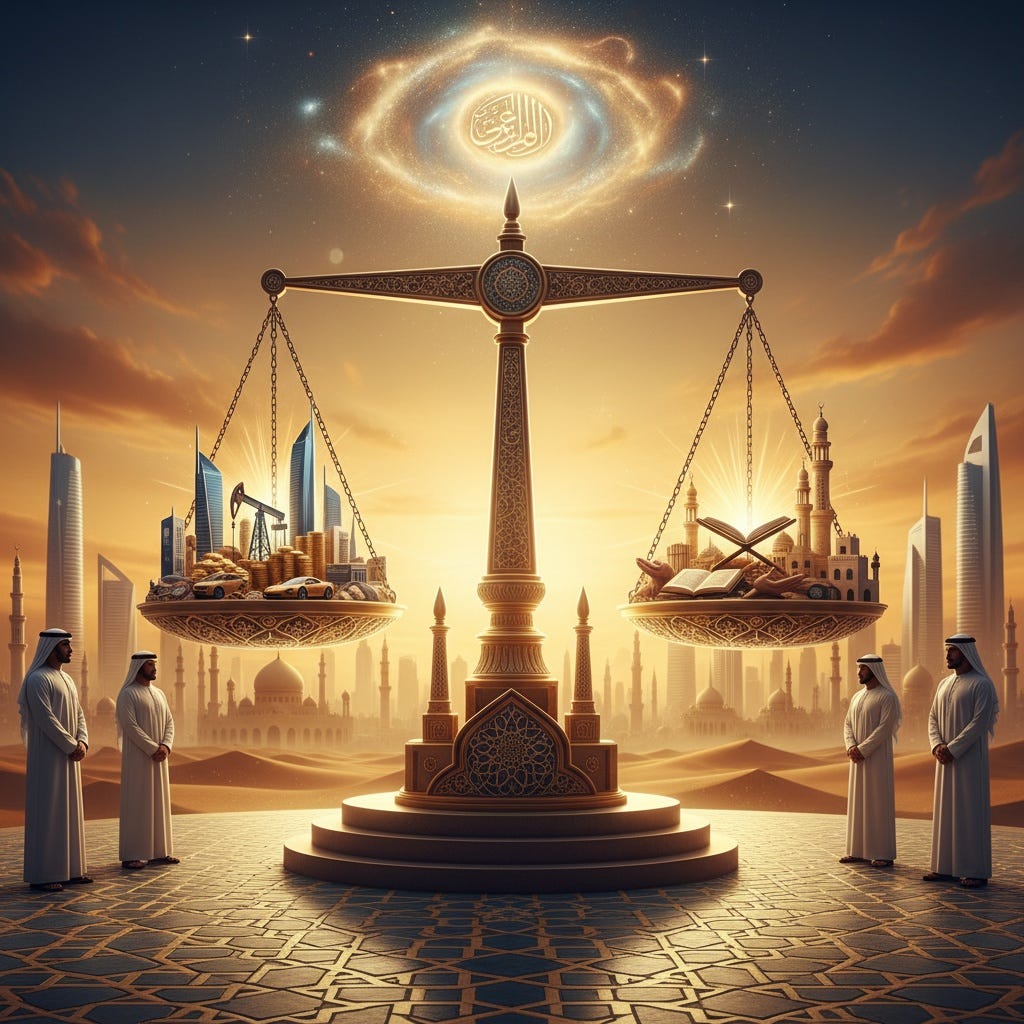Thursday Edition — Islamic Collectivist: Religion as Economic Stability
Culture vs. Capital
In parts of the Arab Gulf, prosperity isn’t measured only in income or innovation; it’s measured in moral order. Nations such as the United Arab Emirates and Saudi Arabia see economic development not as a contest, as in the West, or a coordinated plan, as in Confucian systems, but as a duty. Wealth carries responsibility, and stability is seen as the ul…



